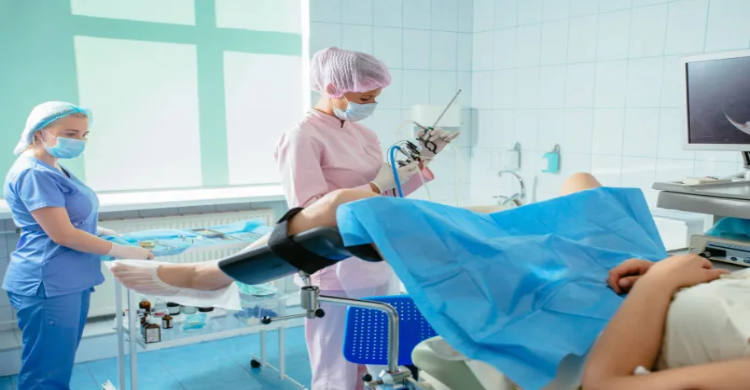Diagnostic Hysteroscopy
Best Gynecologist for Hysteroscopy in Kharghar
What is Hysteroscopy ?
The use of Hysteroscopy enables a surgeon to examine your uterus from the inside in order to locate and treat the sources of irregular bleeding. During a Hysteroscopy, your cervix and the interior of your uterus are inspected using a thin, illuminated tube called a Hysteroscope that is placed into your vagina. Polyps, fibroids, and adhesions can all be removed surgically during a Hysteroscopy.

What is diagnostic Hysteroscopy ?
Using a Diagnostic Hysteroscopy, your uterus’ structural issues that might be causing abnormal bleeding are found. Additionally, hysteroscopy may be utilised to validate the outcomes of other exams such an ultrasound or Hysterosalpingography (HSG). To determine whether your fallopian tubes are obstructed, an X-ray dye test called an HSG is performed. It might be challenging to get pregnant if your fallopian tubes are blocked.
Main Purpose of Diagnostic Hysteroscopy
- Hysteroscopy is used to discover and remove polyps and fibroids, which are uterine structural abnormalities.
- Uterine adhesions, often referred to as Asherman's syndrome, are bands of scar tissue that can develop in your uterus. They may alter the flow of your menstrual period and result in infertility. Your doctor can find the adhesions with the use of hysteroscopy.
- Uterine septums are a congenital (existing at birth) uterine abnormality that can be detected with hysteroscopy.
When is a Diagnostic Hysteroscopy performed ?
Your surgeon would probably advise setting up your Hysteroscopy within the first week after you stop bleeding if your periods are regular. The best look of your uterus’ inside will be possible at this time. You may need to coordinate the ideal timing for your Hysteroscopy with your surgeon if you have irregular menstrual cycles.
How to prepare for a Diagnostic Hysteroscopy ?
Your doctor will check to see whether you’re a suitable candidate for a Hysteroscopy, go over the process with you, and address any concerns you might have. You’ll get instructions to help you get ready for the treatment.
Your doctor might:
- Ask what medications you are taking, including vitamins and supplements, and take a medical history. You might have to stop taking any anti-clotting drugs, such as aspirin, before the surgery.
- Conduct a physical examination, pelvic examination, and pregnancy test. Depending on the particulars of your operation, you could be required to undergo a blood test or other diagnostic procedures.
- Give instructions on how to get ready, including what to dress for the surgery, whether you need to fast before, and whether you need a ride home after your hysteroscopy.
How is a Diagnostic Hysteroscopy performed ?
Your legs will be in stirrups as you lay on the exam table. When you are situated, your surgeon will:
- Examine the pelvis.
- To make room for the hysteroscope to be implanted, your surgeon will dilate (open) your cervix.
- A hysteroscope will be inserted into your uterus through vagina and cervix.
- Send a liquid solution into your uterus through the hysteroscope to gently stretch it and take out any blood or mucus. This procedure enables your surgeon to see your fallopian tubes, uterus, and uterine lining.
- Examine the apertures of your fallopian tubes and uterus. Your surgeon can see clearly more easily thanks to the hysteroscope's illumination.
After Procedure
If you received anaesthesia for your hysteroscopy, you could be kept under observation in the recovery area for a number of hours. You can have short-term cramps or minor bleeding. Additionally, it’s normal to have some dizziness or nausea very away after your treatment. Your recovery period will vary on how extensive your procedure was, such as whether your hysteroscopy involved both diagnostic and surgical procedures. Following a hysterectomy, patients are frequently instructed to refrain from douching, sexual activity, and introducing anything into their vagina (such as tampons) for two weeks. During your rehabilitation, you could be told to stay away from hot tubs, swimming, and bathing.
Consulting hospital
Women's Care Clinic
- C/O Dr. Sonal Bhangale, SHOP NO 512, OPD 209, plot no 47, D Mart Rd, Sector 15, Kharghar, Navi Mumbai, Maharashtra 410210
Alpha One Hospital
- Alphaone Hospital, Kharghar 410210.
